Iran begins days of funeral ceremonies for President Raisi as investigators probe helicopter crash
- Oops!Something went wrong.Please try again later.
- Oops!Something went wrong.Please try again later.
The body of Iranian President Ebrahim Raisi has arrived in Tehran as part of funeral ceremonies scheduled to run over several days, according to state-run news agency IRNA.
A video broadcast by state media shows the presidential plane arriving at Tehran’s Mehrabad airport, carrying Raisi’s coffin. Government and military officials lined a red carpet, and many could be seen publicly weeping as a military escort carried the coffin.
According to images published by state media, a seat on the presidential plane was left empty, covered only in black cloth and a picture of Raisi laid on it.
Raisi, a 63-year-old ultraconservative cleric who had once been seen as a potential successor to current Supreme Leader Ayatollah Khamenei, died in a helicopter crash alongside other high-ranking officials, including the country’s foreign minister, on Sunday morning.
His death leaves the Islamic Republic’s hardline establishment facing an uncertain future as it navigates rising regional tensions and domestic discontent.
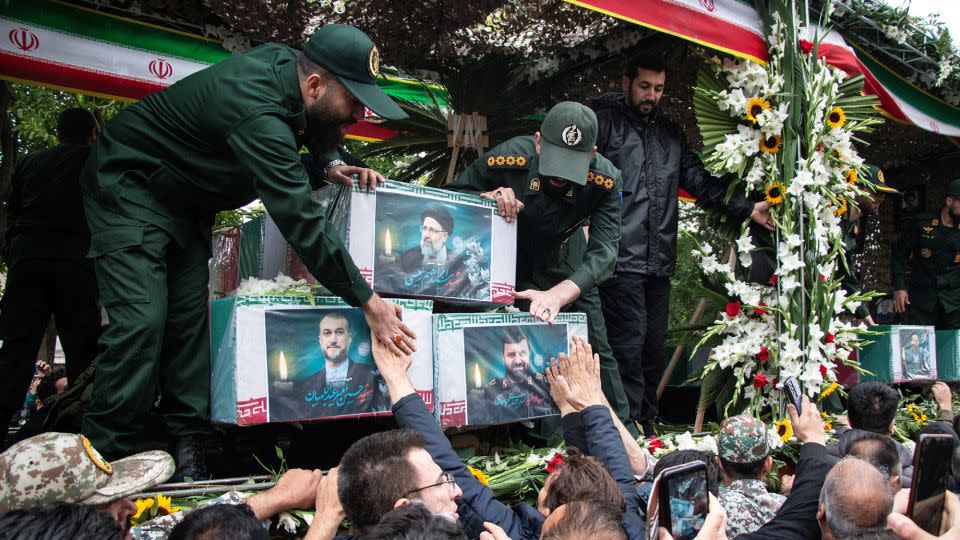
Tuesday began with funeral prayers and a procession in the northwestern city of Tabriz, the largest city in the mountainous northwestern region of Iran where the chopper crashed.
Images released by state media showed large crowds dressed in black lining Martyr’s Square and surrounding streets in the rain as a large truck, adorned with flowers and draped in the Iranian flag, drove through the crowds carrying the coffins of Raisi, Foreign Minister Hossein Amir-Abdollahian and the others killed in Sunday’s helicopter crash.
In a speech in Tabriz on Tuesday, Iranian Interior Minister Ahmad Vahidi said Raisi and Amir-Abdollahian “set a model for brave service and diplomacy,” pointing to the Israel-Hamas war in Gaza.
“Who can forget Raisi’s heartfelt speeches in defense of Gaza?” Vahidi said, IRNA reported.
The bodies of the victims will then be transferred to the holy Shiite city of Qom, where many of the clerics who make up Iran’s theocratic elite are trained, for prayers scheduled at the Fatima Masumeh shrine.
On Wednesday, large ceremonies are planned in Tehran’s Grand Mosallah Mosque. Mansouri announced a public holiday and the closure of offices all over the country that day so that processions can take place.
Raisi’s body will then be moved to the historic Imam Reza shrine in Mashhad where Ayatollah Khamenei will conduct prayers, according to Mehr News.
There is no indication what might have caused the crash – and why so many senior Iranian government officials were traveling in a single, decades-old helicopter.
In the first moments after Raisi’s helicopter lost contact on Sunday night, Turkey said it monitored whether or not the aircraft gave a “signal,” but was unable to detect anything.
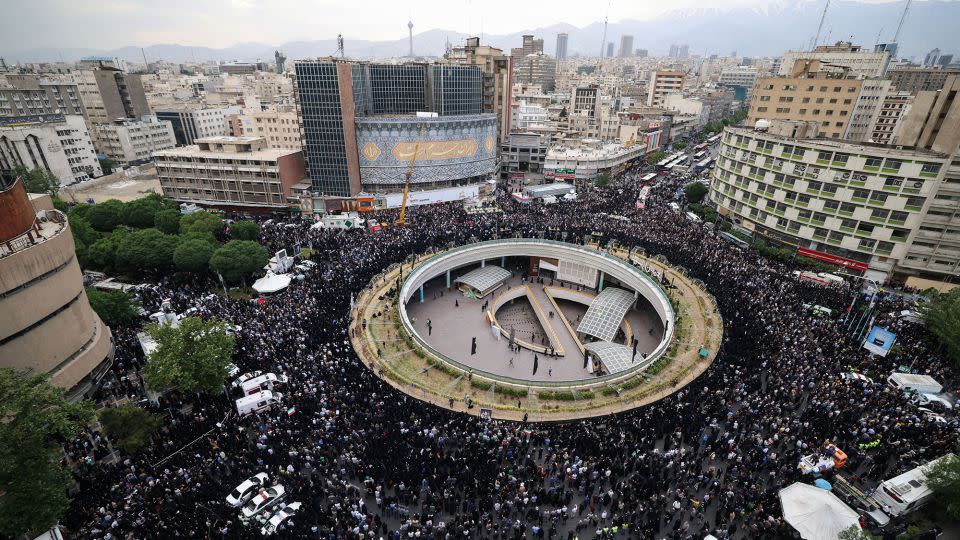
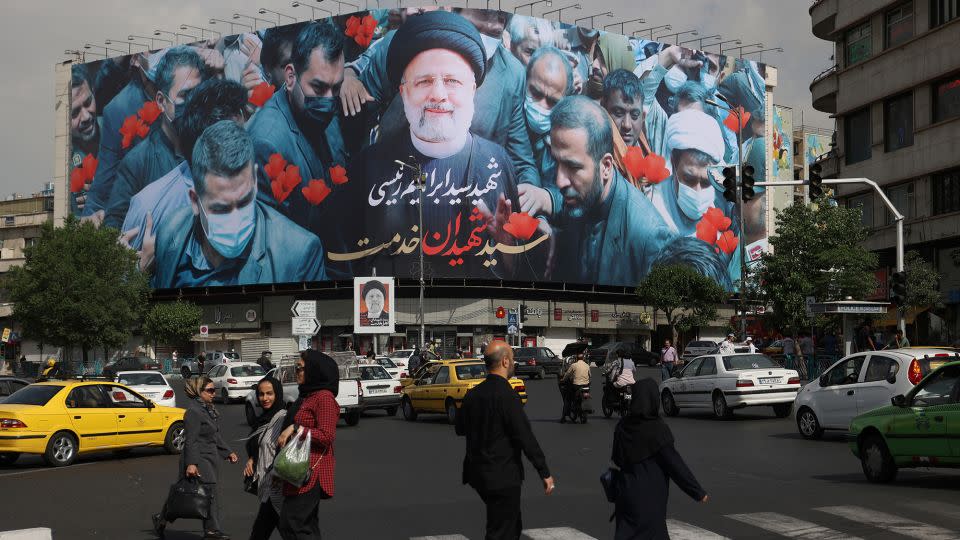
“We immediately contacted the Iranian side. They also contacted us, but unfortunately it was seen that the signal system was either turned off or the helicopter did not have the signal system,” said Turkish Transportation and Infrastructure Minister Abdulkadir Uraloglu, according to Turkish state broadcaster TRT.
It was not clear whether he was referring to the helicopter’s transponder, which the vast majority of aircraft are usually equipped with.
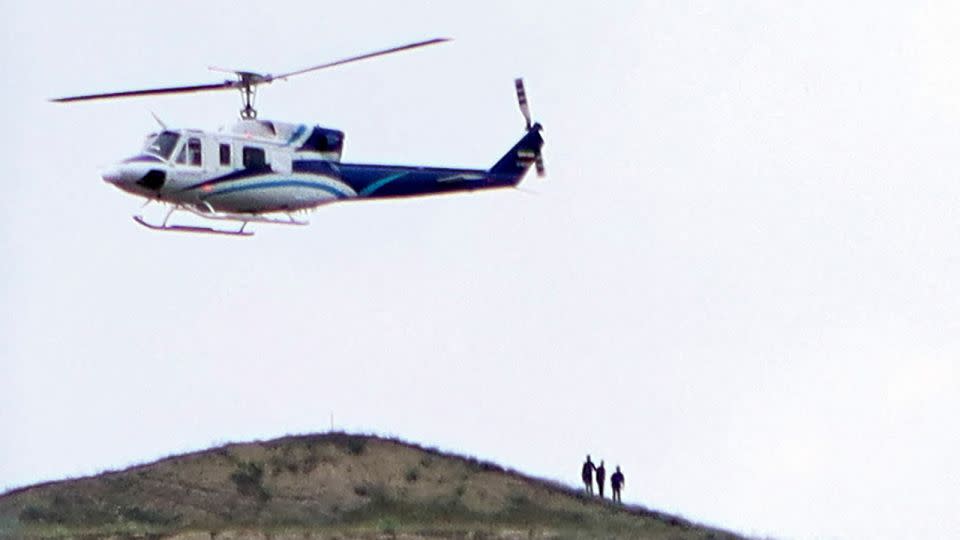
When asked whether there was a possibility of sabotage, Uraloglu said that it was too early to comment on this issue, and said initial indications looked like an accident due to foggy weather.
On Monday, Iranian media reported that the country’s military chief had appointed a commission to investigate the cause of the crash, which includes military and technical experts.
A high-ranking delegation will go to the crash site in Eastern Azerbaijan, according to Iran’s Tasnim news agency.
Autocratic partners hail a lost ‘friend’
The loss of Raisi — a conservative hardliner and protege Ayatollah Khamenei — is expected to sow further uncertainty in a country already buckling under significant economic and political strain, with tensions with nearby Israel at a dangerous high.
His death triggered both domestic and international reactions – with several of Iran’s autocratic partners sending both condolences and effusive praise. Russian President Vladimir Putin, Chinese leader Xi Jinping and North Korea’s Kim Jong Un all released statements praising Raisi’s legacy and hailing him as a “friend.”
In his message Kim described Raisi as “an outstanding statesman and a close friend of the (North Korean) people,” adding that the leader had “made a great contribution to the cause of the Iranian people for safeguarding the sovereignty, development and interests of their country,” according to North Korean state media KCNA.
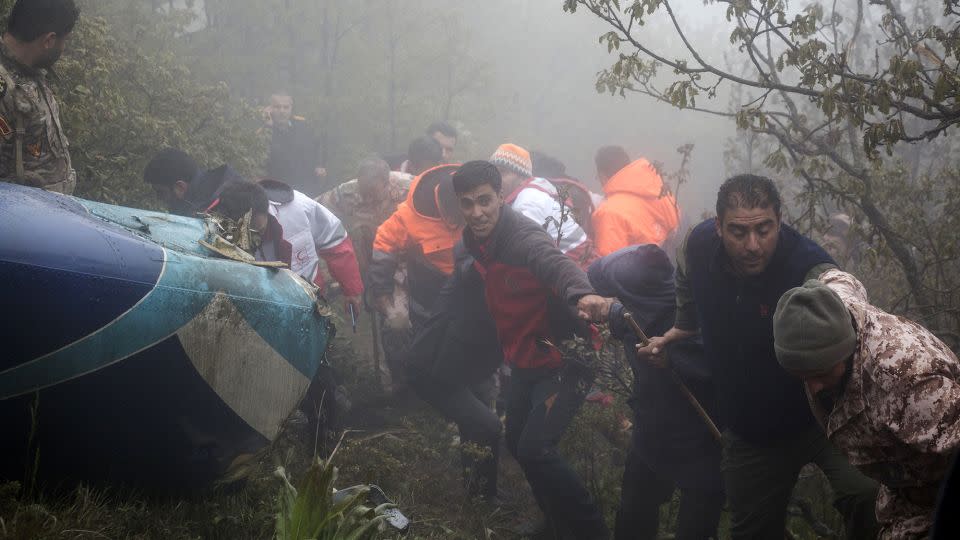
Xi, whose government last year played a role in brokering a landmark rapprochement between Iran and Saudi Arabia, hailed Raisi’s “important contributions to maintaining Iran’s security and stability and promoting national development and prosperity.”
“Raisi’s tragic death is a great loss to the Iranian people, and the Chinese people also lost a good friend,” Xi said in a statement released by Chinese state media, adding that the two countries would continue to “consolidate and deepen” their strategic partnership.
Putin, who is believed by the US to be receiving support from Iran for his war in Ukraine, called the Iranian leader an “outstanding politician” and a “true friend of Russia.” Raisi made “an invaluable personal contribution” to the development of the countries’ relations, Putin’s statement released by the Kremlin said.
The comments come as observers have pointed to a loose but growing coordination of interests between Iran, China, North Korea and Russia over their shared animosity toward a global system they see as dominated by the US and its values.
Inside Iran, where many of the country’s restive youth population have grown tired of rule by conservative clerics, Raisi had a much more polarizing legacy.
He was widely seen as a figure in which the Iranian hardline establishment had heavily invested in. But he also brutally quashed a youth-led uprising over repressive laws, such as the compulsory hijab, and continued to stamp out dissent in its aftermath.
CNN’s Nadeen Ebrahim, Negar Mahmoodi, and AnneClaire Stapleton contributed to this report.
For more CNN news and newsletters create an account at CNN.com

